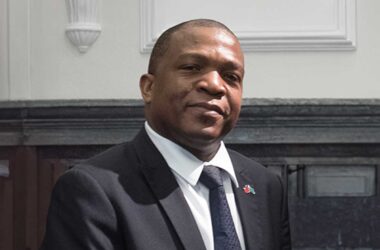Providing laptops to students, covering students’ facilities fees, and increasing the teaching material allowance for each teacher from $800 to $1400 are just some of the promises the government says it will keep as the new school year unfolds.
But what about the ongoing review of the Saint Lucia Education Act, which started two years ago due to concerns that it no longer aligned with the vision for education in Saint Lucia or the needs of the modern education system?
The timeline for the draft to reach parliament is uncertain, but progress has been made in that a wide cross-section of the population has already been consulted, including educational institutions, the opposition, the Christian Council, the Chamber of Commerce, and various other organisations. The draft proposal was also presented at district town hall meetings, and sessions with teachers and principals, agencies and organisations.
In total, 59 consultation sessions have been held, in which a substantial number of comments and suggestions have been gathered. In short, the development of the proposed Bill and Regulations has been highly consultative, ensuring active input from Saint Lucians.
We commend the Ministry for its thorough review process, ensuring that almost every sector of the population has had an input. However, we hope that the teaching of a second language from the primary school level was part of the review process, as the interconnectedness of our world demands our students be able to speak or comprehend a second language. Unquestionably, the earlier students are taught a second language, the more fluent they become as they grow older. The ability to communicate in more than one language is increasingly valuable, and introducing a second language in primary school offers numerous benefits beyond mere communication skills.
While we acknowledge the recent move by the government to include the Saint Lucia Kwéyòl Language in the curriculum of 15 local schools for the 2024/25 academic year and understand that Kwéyòl is more than just a language but also a part of our history and heritage when we speak of a second language, our reference to a second language means we are referring to a language spoken by a large portion of the world’s population, which will impact our students when they are ready for the world of work.
There are several key reasons why teaching a second language at an early age is crucial. One important reason is the cognitive development of our students, who will one day be our leaders. Learning a second language enhances cognitive abilities in young children. Studies have shown that bilingual children often outperform their monolingual peers in various cognitive tasks, including problem-solving, multitasking, and attentional control. The process of learning a new language stimulates the brain, improves memory, and enhances overall mental flexibility.
Additionally, exposure to a second language opens the door to understanding different cultures. This cultural awareness fosters empathy and tolerance in children, helping them appreciate diversity from a young age. By learning about other cultures, children become more open-minded and better prepared to navigate a multicultural world.
Learning a second language can also reinforce a child’s understanding of their native language. It helps them grasp the rules and structures of language more effectively, which can enhance their reading and writing skills. This cross-linguistic transfer of skills can lead to better overall literacy.
Moreover, in an era of an increasingly globalised job market, bilingualism is a significant asset. Early exposure to a second language can set the foundation for advanced language skills in adulthood, making individuals more competitive in the job market. Many employers value employees who can communicate with international clients and partners.
Learning a second language often involves interactive activities such as role-playing, storytelling, and group discussions. These activities can boost children’s social skills, including their ability to listen, communicate effectively, and work collaboratively with others.
It is well-known that children’s brains are particularly receptive to language learning at a young age. They can pick up new sounds, vocabulary, and grammar rules more easily than older learners. Starting language education in primary school takes advantage of this natural ability, leading to more proficient language skills over time.
We hope that in reviewing the Saint Lucia Education Act, the assessors considered the importance of teaching another language in primary schools, alongside Kweyol. The benefits are clear enough for the revised Education Act to include this as an essential component of modern education.












